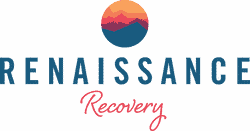Finding an Inpatient Rehab in Orange County
Whether you’re in need of drug and alcohol detox, or mental health support, an inpatient rehab in California can help you maintain long-term sobriety. While Renaissance Recovery specializes in outpatient treatment, we can help you or a loved one find an inpatient program in Southern California. California inpatient rehabs are controlled and substance-free environment offering around-the-clock medical care as well as robust emotional support.

By: Renaissance Recovery
Clinically Reviewed by: Diana Vo, LMFT
Last Updated:
03/24/2024
Inpatient Rehab – California
Depending on your alcohol or drug addiction history, residential treatment programs like inpatient therapies can be critical to the success of your recovery. First, our admissions team will conduct a full clinical assessment that determines what level of care you need. If an inpatient program is right for you or your loved one, they will spend 7-10 days in detox, and 30-45 days of inpatient programs.
Drug and alcohol addiction treatment programs can be divided into two categories:
Inpatient rehabs which include detox, residential treatment, and partial hospitalization programs
Aftercare which can include partial hospitalization (PHP) Intensive Outpatient (IOP) and Outpatient (OP)
These two types of treatment programs are both strongly focused on long-term substance abuse recovery, but each modality offers its own benefits and attributes.
An inpatient program, also known as residential rehab, is designed to effectively treat more serious addictions. While intensive outpatient programs, by contrast, are ideal for treating mild and moderate alcohol use disorder or substance use disorder. However, every situation is different.
Table of Contents


What Happens During Inpatient Rehab?
Regardless of the scope and nature of the addiction, inpatient addiction treatment will typically consist of a combined approach of medication-assisted treatment and psychotherapy. Inpatient rehab treatment will often begin with a medical detox to remove the drugs or alcohol from the body. Then, inpatient rehab programs will begin, consisting of a variety of evidence-based therapies.
Medical Detox Treatment
The medical detox process offers a safe, professionally supervised environment where the withdrawal and detox process can occur.
Medical Detox usually includes 3 phases:
Evaluation phase:
During an initial assessment at a licensed medical detox center, a clinical professional can determine your withdrawal potential and acute intoxication potential. Based on the findings, the treatment team can create a personalized detoxification plan at the appropriate level of care.
Stabilization phase:
A treatment plan will be in place by our medical doctor and clinical director to taper the symptoms of withdrawal, and provide a safe approach to detoxification.
Transitional phase:
Detox offers a seamless transition into inpatient rehab. Here, you can unpack the psychological aspect of addiction.
Inpatient Addiction Treatment:
An inpatient addiction treatment center will usually offer the following services:
Counseling: Individual and group counseling sessions help you to explore addiction in general and your addiction specifically
Psychotherapy: With CBT sessions, you’ll learn to better understand the way your thoughts and behavior are linked. You’ll identify your triggers for drug use, and you’ll also formulate healthier coping strategies that don’t involve a chemical crutch
MAT: Medication-assisted treatment can be delivered throughout treatment, not only during detox
CM (contingency management): With this drug addiction treatment, healthy behaviors are incentivized. Drug abuse warps the reward center in your brain, and as you are recalibrating and sobering up, healthy rewards can take the place of the high delivered by drugs
MI (motivational interviewing): This is an objective form of therapy helping you to make self-serving changes rather than changing for the perceived benefit to others. Personal responsibility is central to this approach
12-step groups: Attending 12-step support groups like NA and AA can be a vital part of sustained recovery for many. You’ll find meetings of 12-step groups on-site at most residential rehabs
Family therapy: Many residential rehabs can facilitate family therapy, ideal for repairing damaged relationships with the support of a neutral intermediary
Holistic treatments: These holistic wellness treatments can involve yoga, massage, or outdoor activities in the form of evidence-based experiential adventure therapy
Vocational development: Many inpatient centers provide access to a range of vocational development resources and educational programs
With NSDUH data showing 14.5 million adults with alcohol use disorder in the United States, the abuse of this socially-acceptable substance is rife. An inpatient alcohol rehab or inpatient drug rehab program can be the catalyst for successful, long term sobriety.
Find The Perfect Inpatient Rehab Through Renaissance Recovery
Whether you’re looking for an inpatient drug rehab center or inpatient alcohol rehab center, Renaissance Recovery has connections with numerous inpatient and outpatient treatment organizations in California to ensure that you can get the highest quality care possible. Call us today and a team member will walk you through the steps of getting the right level of care that you need.
Many people suffering from alcohol use disorder or substance use disorder also present with a co-occurring mental health condition, such as depression, anxiety, or PTSD. Co-occurring disorder needs an integrated treatment plan with the right dual diagnosis treatment program. At Renaissance Recovery, we offer ongoing treatment to help you address both the substance use disorder and underlying mental health conditions, which is proven to be the most effective treatment for any co-occurring disorders.
If you are ready to leave alcohol or drug abuse behind, we can help you every step of the way. Get things started by reaching out to the friendly team at Renaissance Recovery, a top-notch accredited facility by calling 866-330-9449 today. You can discuss your health insurance plan and how our 30-day drug and alcohol treatment programs can help you.
Inpatient Addiction Treatment Cost
The cost of inpatient drug rehab will vary depending on the type of facility and the treatment program. Factors that can impact the cost of treatment include the length of the program, the level of care provided, the location of the facility, and the amenities that come with the treatment.
Detox ranges from $1000 to $10,000 in total, but has a drastically higher chance of success if followed up with an inpatient program. Typically, this cost is in addition to inpatient treatment costs if individuals want the best chance of a lasting recovery, and to hopefully avoid having to go through detox multiple times. Insurance plans typically cover the entire cost of the addiction treatment program.
Inpatient treatment typically costs around $6000 for a 30-day program before insurance. However, some well-known centers can cost up to $20,000. 60-90 day programs can range anywhere from $12,000 – $60,000 before insurance. However, this is typically a huge money saver when compared to the cost of drugs and alcohol in addiction, which can range from anywhere from $20,000 to $100,000/year.
Many insurance plans will cover some of the cost of inpatient drug rehab, and you can find facilities that offer financing options or sliding scale fees based on income. It’s important that you research to discover all of your options and their costs to find a program that meets your needs and budget.
Here are the main factors that influence the cost in inpatient drug and alcohol rehab:
Medical detoxification, if required
Geographical location of treatment center
Length of stay at treatment center
Type of accommodation offered, whether private or shared
Scope of amenities provided
If you are not in the position to pay the full costs of treatment in advance, many treatment centers offer financing or payment plans.
Similarly, private insurance programs are legally required to help clients dealing with addiction problems, contact our team today and we can walk you through how your insurance can help cover the cost of rehab.

Inpatient Rehab Near Me at Renaissance Recovery
If you’re looking for an inpatient drug rehab center, Renaissance Recovery has connections with numerous organizations in California to ensure that you can get the highest quality care possible. Following your stay at a residential facility, Renaissance has outpatient programs they offer to help you with your recovery journey when you get to that point.
Many people suffering from alcohol use disorder or substance use disorder also present with a co-occurring mental health condition, such as depression, anxiety, or PTSD. Co-occurring disorder needs an integrated treatment plan with the right dual diagnosis treatment program. You’ll attack both the substance use disorder and underlying mental health condition simultaneously, which has been proven as the most effective treatment for co-occurring disorder.
If you are ready to leave drinking or drugs behind, we can help you every step of the way. Get things started by reaching out to the friendly team at Renaissance Recovery, a top-notch accredited facility by calling 866-330-9449 today. You can discuss your health insurance plan and how our 30-day drug and alcohol treatment programs can help you.
Rehabilitation can put an end to addiction
Call and ask the facility directly or call your own provider to determine if your insurance covers the treatment.

